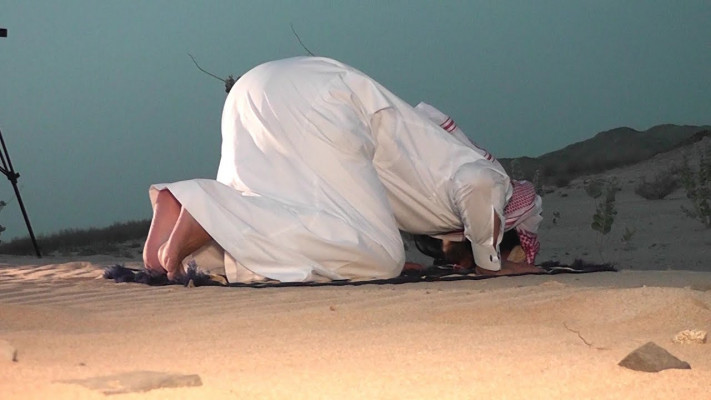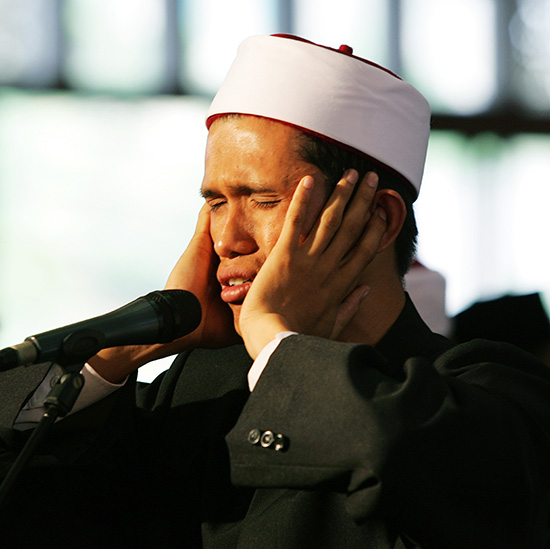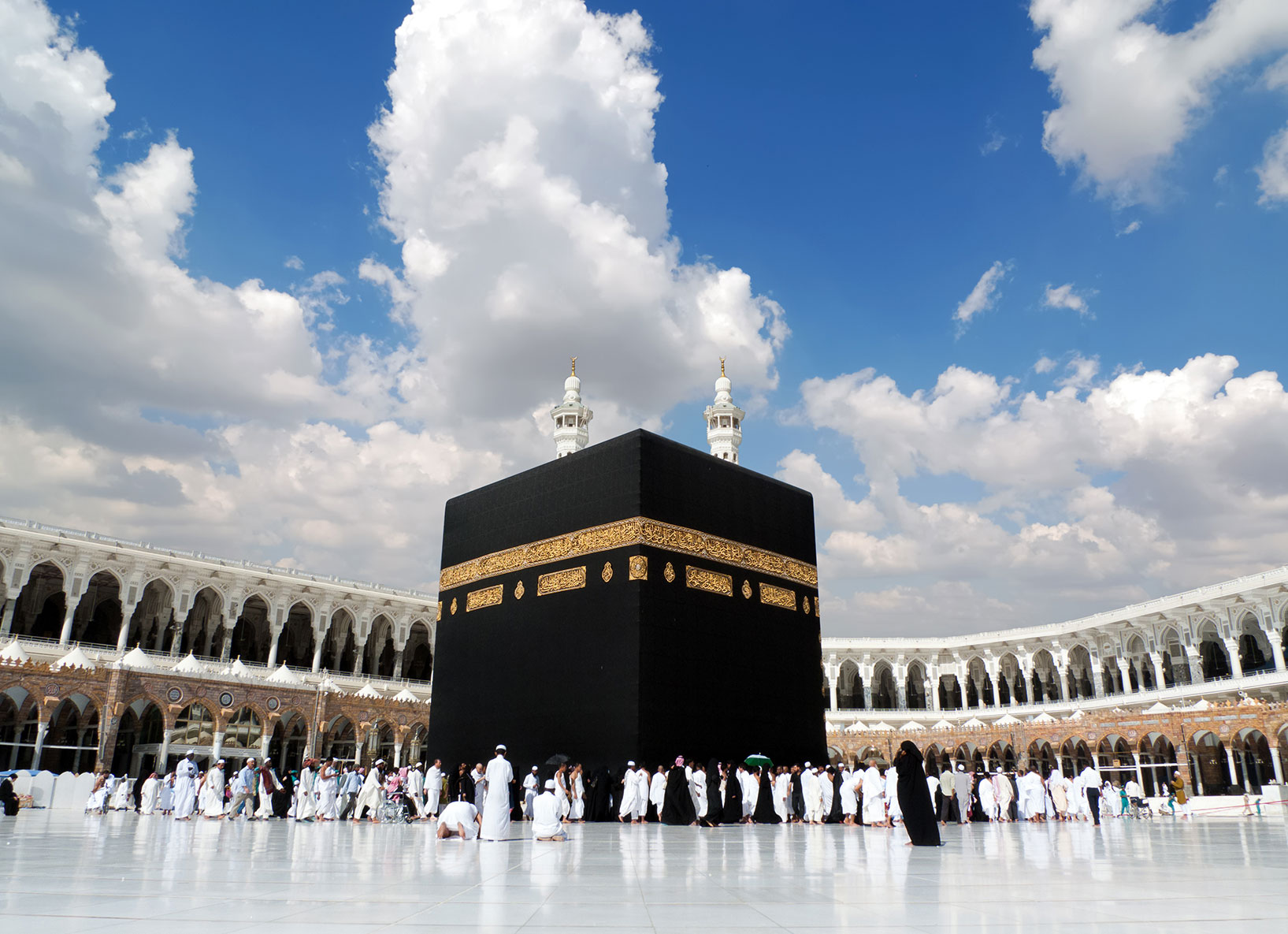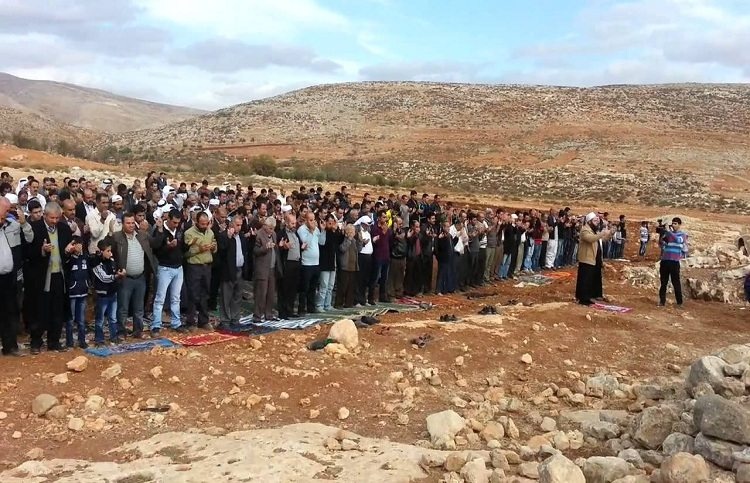Current Section: model

Lesson Prayer and Fasting During Jouneys
When the time for prayer enters while you are in a park, and there is no mosque close by, it is legislated to make the call for prayer with a raised voice for every prayer.

'Abdullah bin 'Abdur-Rahman Bin Abi S'as'ah reported that Abu Sa'id Al-Khudri (may Allah be pleased with him) said to him: "I see that you like living among your sheep in the wilderness. So whenever you are with your sheep or in the wilderness, and you want to call Adhan, you should raise your voice because whoever hears the Adhan, whether a human or jinn or any other creature, will testify for you on the Day of Resurrection." Abu Sa'id added: "I heard this from the Messenger of Allah (ﷺ)."(Al-Bukhari, 609)
From this narration, we learn the virtue of the Adhan and that it should be made when traveling and not neglected. In another narration, it is mentioned: «The caller to prayer will be forgiven according to how far his voice reaches, and every moist and dry place will seek forgiveness for him.» (Ibn Majah, 724)
.jpg)
When on a journey or excursion, the direction of the prayer (Qibla) should be determined to the best of a person's ability, and what is intended by this is the direction of Makkah; if it can't be seen, then the general direction is sufficient. The exact location doesn't need to be faced because that would create some difficulty, and the companions (Of the Prophet ﷺ) were not known for doing that.

If a person tries his best to determine the direction of the Qiblah and prays, then his prayer is valid; even if he finds out after he's finished praying that he did not pray in the right direction, then there is no need for him to repeat the prayer. However, if he finds out while praying, he should turn and face the right direction. As for the person who did not try his best to determine the Qiblah and just prayed, he must repeat the prayer as soon as he finds the correct direction.
Modern devices that show the Qiblah are an acceptable way of determining the direction, or other reliable methods such as using the sun etc. Also, if a trustworthy person in the locality you are in informs you of the direction, or clear signs showing the Qiblah are acceptable.
Maintaining the prayer during journeys is of the most critical tasks and is proof of a servant's truthfulness of faith.

It has been mentioned in a narration of the Prophet ﷺ that he said: «The prayer in congregation is equal to twenty-five times the reward than the one praying alone. Therefore, when a person prays and completes the bowing and prostration, it is multiplied up to fifty times the reward.» ( Abu Dawud, 560)
This shows a person"s connection with Allah and fear of Him to the degree that when they are far from the eyes of people. In this regard, a narration says: «Your Lord is amazed at the shepherd on a mountain peak. He calls to the prayer and then prays, and Allah says: Look at this servant of mine; he calls to prayer and then stands to pray. He only fears me. Indeed I forgive My servant and admit him into paradise» (Abu Dawud, 1203).
People often light fires when they go out to cold places; sometimes, they may even pray towards a fire. The best thing to do is to not pray towards a fire, especially the imam, in order to stay away from any imitation of those that worship fire. Also, the fire can be a distraction for the one praying. If they need to keep warm and changing the location is difficult, then there is no harm in them doing so.

Combining two prayers refers to praying Zuhr and joining it with Asr or praying Maghrib with Isha, thereby praying two prayers at the same time (whether it be joining the prayers at the earlier time of the two prayers or the latter of the two.) That is only allowed if a valid reason for joining the prayers is present.

Shortening the prayers refers to a four-unit prayer being prayed as two units, i.e., Dhuhr, Asr, Isha; the Maghrib and Fajr prayers are not to be shortened.
Valid reasons to combine and shorten prayers during journeys include: Traveling, i.e., leaving your residence and covering a distance considered travel. Some scholars have estimated this distance to be around 80 kilometers by modern standards. So if someone was to go out close to his home for leisure, then he should not shorten his prayers. However, if he was to go out of his city covering a distance, which is considered a journey, he should shorten his prayers, even if he has gone out for leisure.
Shortening the prayers is recommended for the traveler. As for combining prayers, if someone is on the road, he is allowed to combine, either earlier or later, depending on what is most appropriate for his journey. On the other hand, if the traveler happens to be staying in one place, then what is best is for each prayer to be prayed at the usual time, especially if he can attend one of the mosques to pray in congregation.
The traveler and his companions should not be neglectful in performing the prayers at their prescribed times and not become too preoccupied with the concerns of the journey. Allah says: (But when you become secure, re-establish [regular] prayer. Indeed, prayer has been decreed upon the believers a decree of specified times.) (An-Nisaa:103)
When combining two prayers on a journey, it is sufficient to give just one Adhan, then the standing call (Iqamah) for the prayer is made for each prayer. As for the prescribed words of remembrance (Adhkaar), they should be done after the second prayer is prayed.

During journeys, disagreements often occur regarding the validity of an excuse that allows travelers to shorten and combine their prayers. The Imam or head of the group (such as the father) is responsible for making that decision. He should decide for himself if he has knowledge or consult those that do. He should not shorten or combine them if he feels they do not have a valid excuse. The rest of the group should not dispute because having harmony among each other is also a form of worship.
Fasting is not required for journeys in itself. Instead, whoever fasts routinely on Mondays and Thursdays, for example, and a trip falls on those days, then there is no prohibition for a person to fast while traveling.

Anas Bin Malik narrated that: "We used to travel with the Prophet ﷺ, and neither did the fasting persons criticize those who were not fasting, nor did those who were not fasting criticize the fasting ones." (Al-Bukhari. 1947, Muslim, 1118)


